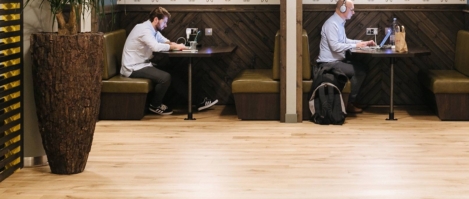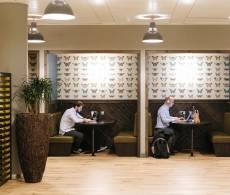December 3, 2015
Dog-friendly offices more appealing to Millennials than play rooms 0
 Only a third of US workers believe that promotion offers the potential to advance their career with more than a third of all workers and 44 percent of Millennials preferring to jump ship if the right opportunity arises. Addison Group’s second annual generational workplace survey found that regardless of generation, healthcare benefits was most important benefit (70 percent), followed by a high salary (59 percent). However, Millennials would choose one company over another that paid a higher salary if free meals, beverages and snacks (40 percent) and tuition reimbursement (36 percent) were provided. Millennials also rank a dog-friendly office (14 percent) higher than a napping room, concierge services and a play room with ping pong, billiards and video games. They also value the social aspect of the workplace highly, with nearly twice as many (15 percent) marking work-sponsored happy hours as important compared to Baby Boomers (8 percent).
Only a third of US workers believe that promotion offers the potential to advance their career with more than a third of all workers and 44 percent of Millennials preferring to jump ship if the right opportunity arises. Addison Group’s second annual generational workplace survey found that regardless of generation, healthcare benefits was most important benefit (70 percent), followed by a high salary (59 percent). However, Millennials would choose one company over another that paid a higher salary if free meals, beverages and snacks (40 percent) and tuition reimbursement (36 percent) were provided. Millennials also rank a dog-friendly office (14 percent) higher than a napping room, concierge services and a play room with ping pong, billiards and video games. They also value the social aspect of the workplace highly, with nearly twice as many (15 percent) marking work-sponsored happy hours as important compared to Baby Boomers (8 percent).








































November 23, 2015
The benefits of peeling back the layers of the workplace onion 0
by Darren Bilsborough • Comment, Flexible working, Technology, Workplace, Workplace design
More →